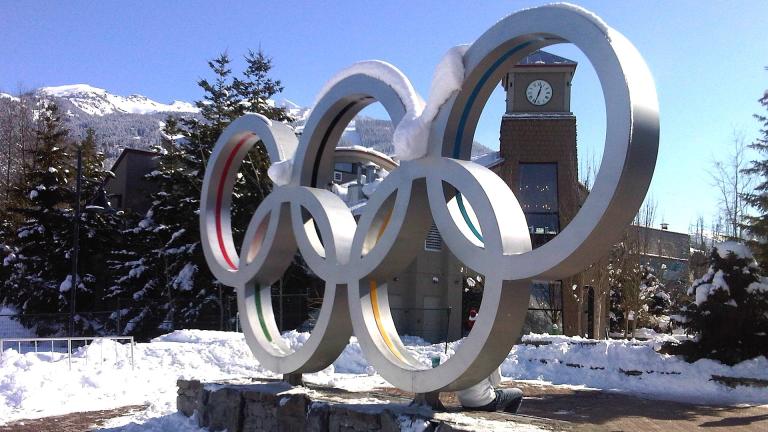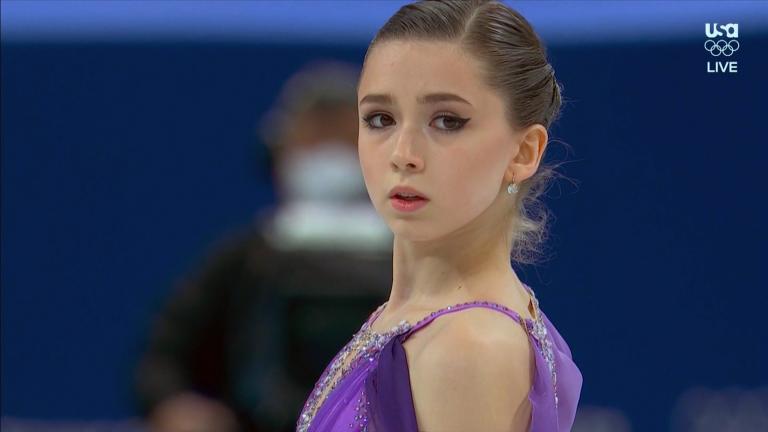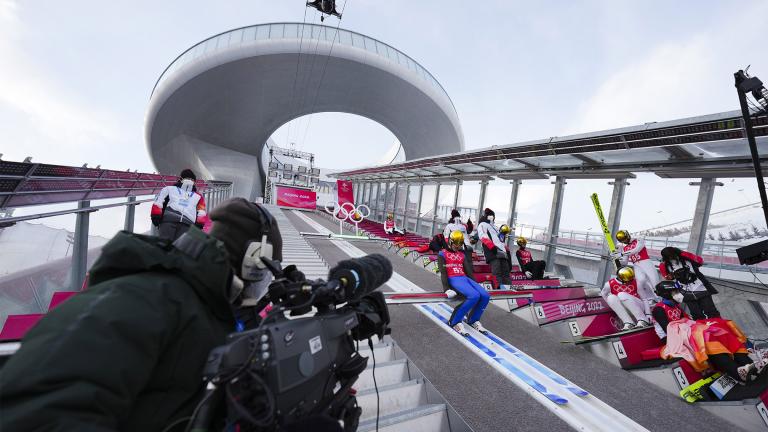From modular cardboard beds for athletes in the Olympic Village to medal podiums made from recycled plastic, the Tokyo Games are putting sustainability measures front and center.
Even the event’s name and logo are recycled, with organizers opting not to rebrand after the 2020 Games were postponed to 2021 due to the coronavirus pandemic.
While the cardboard bed frames have been drawing the most media attention — with plenty of wink-and-nod references to the sorts of “gymnastics” they may or may not support — the sleeping equipment isn’t the only innovative solution that will be on display in Tokyo. The Games’ sustainability plan set a target of reusing or recycling 65% of waste generated during the event, and organizers are also aiming to recycle or reuse 99% of goods procured for the games.
Some of the Games’ most high-profile moments will incorporate clever examples of “reduce, reuse, recycle,” including the Olympic torch relay, with torch bearers decked out in gear made from recycled plastic bottles.
The Japanese public, though reportedly not supportive of their government’s decision to go forward with the Games during another surge in COVID-19 cases, had been heavily involved in the sustainability campaign, which launched prior to the pandemic.
People across Japan dropped off plastic waste at collection bins placed at retailers and schools, contributing 13 tons of material that, combined with another 11.5 tons collected by organizations and businesses, was ultimately transformed into the Games’ 98 medal podiums, all constructed using a 3-D printer. After the Games, the pedestals themselves will be recycled back into shampoo and detergent bottles, organizers said.
The podiums for the Victory Ceremony of the Olympic and Paralympic Games are !
For the first time in history, they are made from recycled plastic donated by the Japanese public.
Watch the #Tokyo2020 Victory Ceremony: https://t.co/VIy5CQkvwF pic.twitter.com/vg41a7LzQI
— #Tokyo2020 (@Tokyo2020) June 3, 2021
As athletes step to the plastic podiums to receive their medals, the shiny hardware hung around their necks will also represent a gift of sorts from the Japanese people’s waste bins.
All 5,000 of the medals were manufactured from metal salvaged from recycled smartphones and electronic devices donated by the public. Nearly 80,000 tons of gadgets were collected, including more than 6 million phones, as well as digital cameras, laptops and more.
After being stripped down, the devices yielded more than 30 kilograms of gold; 4,100 kilograms of silver; and 2,700 kilograms of bronze, according to organizers of the Tokyo Olympics.
Additional sustainability measures that won’t be obvious to viewers include deals to obtain renewable electricity from a biomass power plant, and the use of electric vehicles to transport personnel.
The Tokyo Olympics start Friday and continue through Aug. 8. NBC will air the opening ceremony live on Friday at 5:55 a.m., and a prime-time, recorded version at 6:30 p.m.
Contact Patty Wetli: @pattywetli | (773) 509-5623 | [email protected]








